Every year-group that grows through their PHPS time has a special musical ‘something’ that by the time these students are in Yr 6, I start to feel a tug at the ‘heartstrings’. Our super Yr 5/6 Uke Club, mostly made up of Yr 6s, are Ruby and Warrick’s stunning Yr2s of 2019. Ruby’s passion for music, and uke ability, made starting a Yr 2 weekly Uke club a joyous reality, and we sowed the seeds of a budding uke culture at PHPS. On just one rehearsal and a warm up on their performance morning, the 5/6 Uke Club did a stunning job leading the song ‘You are My Sunshine’ for the Mother’s and Special Carer’s Day Assembly. Across the Neighbourhoods, we have also enjoyed looking ahead to the Reconciliation Assembly for which we will sing the iconic song ‘From Little Things Big Things Grow’. Please click the link to read more…https://blogs.phps.vic.edu.au/specialists-2022/2023/05/18/you-are-my-sunshine/
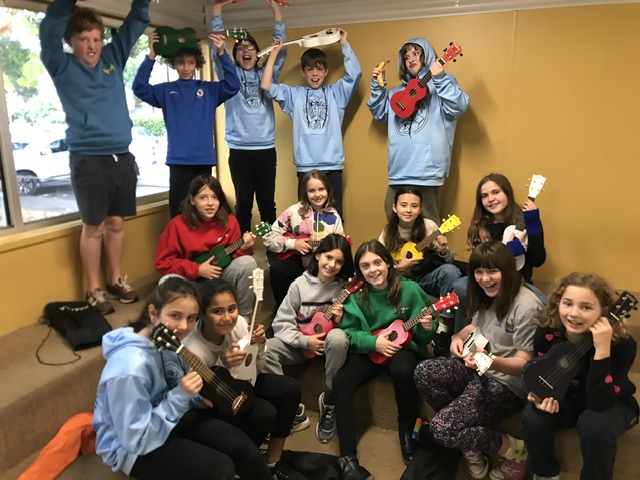
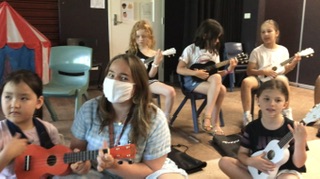
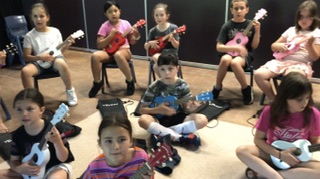
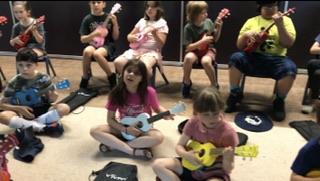
It was a joy to revisit the song ‘You are My Sunshine’ again this year. With it’s original second verse by the Year 2s of 2022, and the whole community singing along, we capped off a delightful assembly of tributes to those special folk who care for us. Although the original song petitions a loved one not to leave a relationship, it’s the chorus which has been sung for generations as a gentle lullaby to the children who are our little beams of sunshine. With no sunshine, there is no life on planet earth: good point Yr 1/2s! And the connection quickly followed: ‘our Mums and Carers are our sunshine’. This song was written back in 1937 during the tough times of the Great Depression. It had such an impact that it became the state song for the state of Louisiana in the USA. My thanks to the Uke Club who were proudly joined by Ruby and John, to everyone for singing along so heartily, and to Nick for ‘anchoring’ the song with his rhythmic double bass.
I love sharing with students how songs are a part of every culture’s social history and that they play an important role in handing down stories to younger generations. Songs grow and change, but the essence of their story holds a truth that needs to be remembered. We have been learning that one such song ‘From Little Things Big Things Grow’ tells a story of an event that happened 57 years ago: ‘The Wave Hill Walk Off’ planted a monumental seed in our countries’ consciousness. It was a big media splash at the time, and although media photos of the culminating moment became some of the most pivotal and iconic images from 20th century Australian political and Indigenous history, the story never made it into the education syllabus for schools for decades. So, generations later, how did most of us hear about the ‘Wave Hill Walk Off’? We heard the story sung on the radio.
In 1991, two Aussie song writing legends were camping out together. Kev Carmody says to Paul Kelly some thing like, ‘I’ve had these four chords, going round and round… I just keep playing them. They need a story.’ Kev knew of the Wave Hill Walk Off strike of 1966. He had heard the story which had been passed down from the Gurindji cattle men and their families. They had gone on strike for eight long years over working conditions and their rightful claim to their land which had been taken from them by colonial pastoralists in the 1880s. Gurindji land, which is about 600km south of Darwin, was then taken over in 1914 by the British meat-packing company Vesty, who turned it into a cattle station and used the labour of mostly Gurindji people to work the station. The Wave Hill Walk Off was not the first time Indigenous people had gone on strike. ‘Walk-Offs’ over working conditions and land rights had been happening for decades. This was a story of ‘Power and Pride’, the power of the British company and the pride of the Gurindji people led by Vincent Lingiari. This was the story Paul Kelly and Kev Carmody made into a song which ‘fell together’ in a couple of hours.
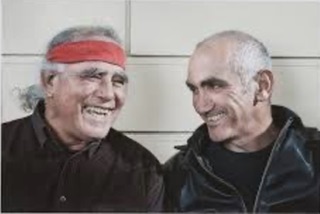
As we have seen before, the chorus of the song ‘From Little Things Big Things Grow’ was so catchy, that it soon got detached from the ballad and sung as a lullaby to our youngest children. On the up side of this though, is that all the children know the chorus, and are ever more fascinated to learn about the significant story around it. All the students will know that the handful of red Northern Territory sand that Gough Whitlam poured into the hand of Vincent Lingiari in 1975, was a ceremonial gesture of returning land back to rightful Indigenous owners. Wave Hill Cattle Station was legally divided between the Vesty Company and the Gurindji people. More than three hundred square kilometres of land, including sacred sites, had now been now returned to the traditional custodians who had cared for this land for tens of thousands of years. It was an historic and significant moment in the advancement of Native Title for Indigenous people.
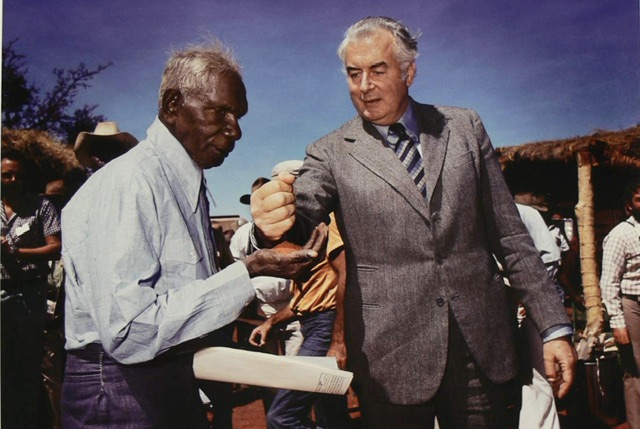
Title Deed to the freehold of Gurindji land on Wave Hill Cattle Station.
We look forward to deepening our understanding of this land mark event and how it informs our role in Reconciliation. A big thank you to Ruby for inspiring the whole school to go behind the scenes of Kev Carmody and Paul Kelly’s protest song as we prepare for our Reconciliation Day Assembly, and thanks to students for sharing your reflections about this story.
Take care everyone, Cheerio, Deb